
Supporting Kidscape to Enhance Their Bullying Support
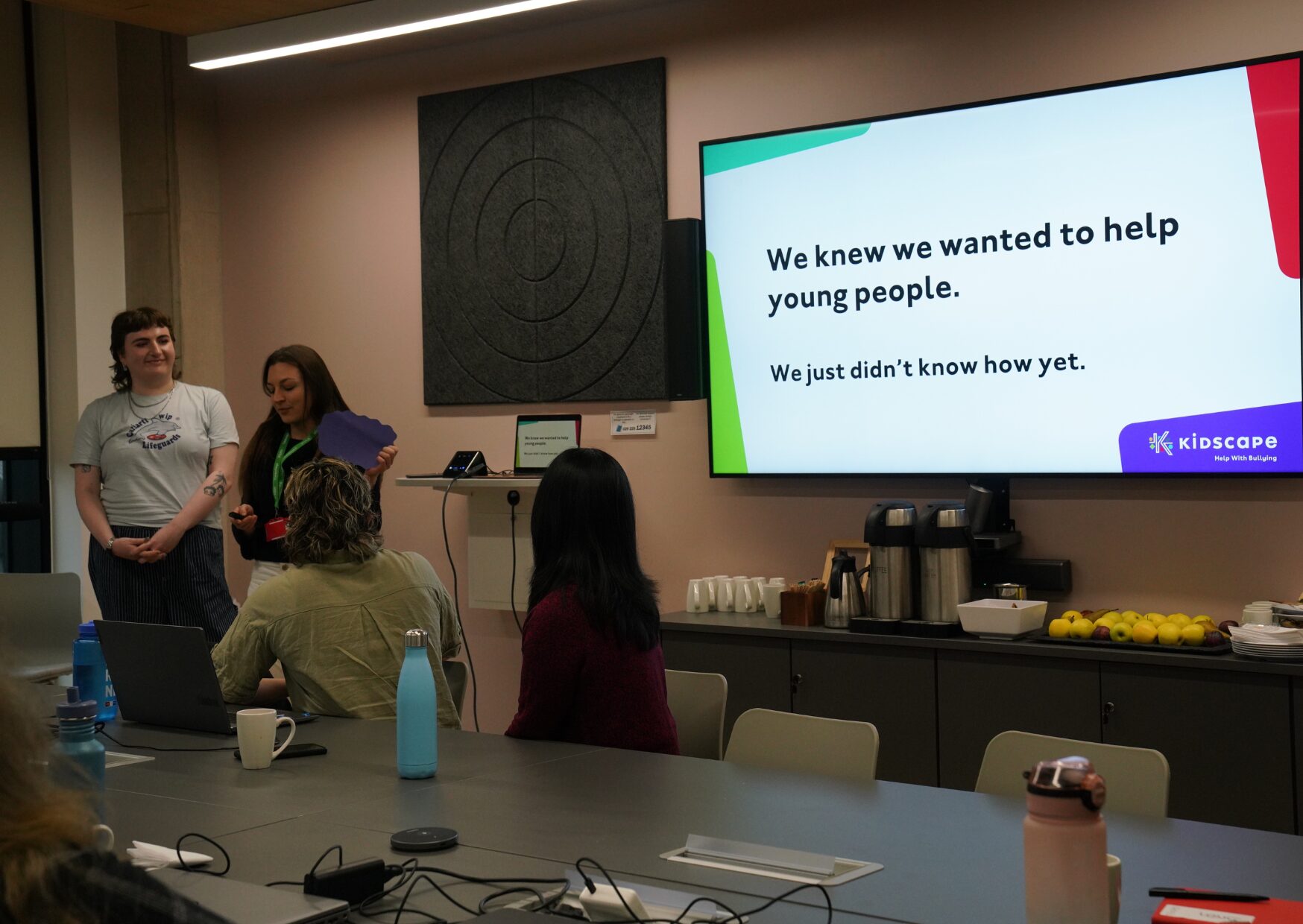
ProMo Cymru supported Kidscape in developing a more effective support system for young people experiencing bullying, moving beyond single workshops to ongoing help.
What was the problem?
Kidscape is a charity focused on preventing bullying and protecting children. They provide resources, training, and support to children, families, and professionals to create safer environments. Their work aims to empower children and equip adults to effectively address bullying.
The organisation had identified a critical gap in their support system. Young people who participated in their practical ZAP workshops expressed a need for ongoing support. They felt abandoned after the workshops and like they were left to deal with bullying situations on their own.
Kidscape joined ProMo Cymru’s Digital Service Design Programme to develop a more sustainable and impactful support system for young people who access their services.
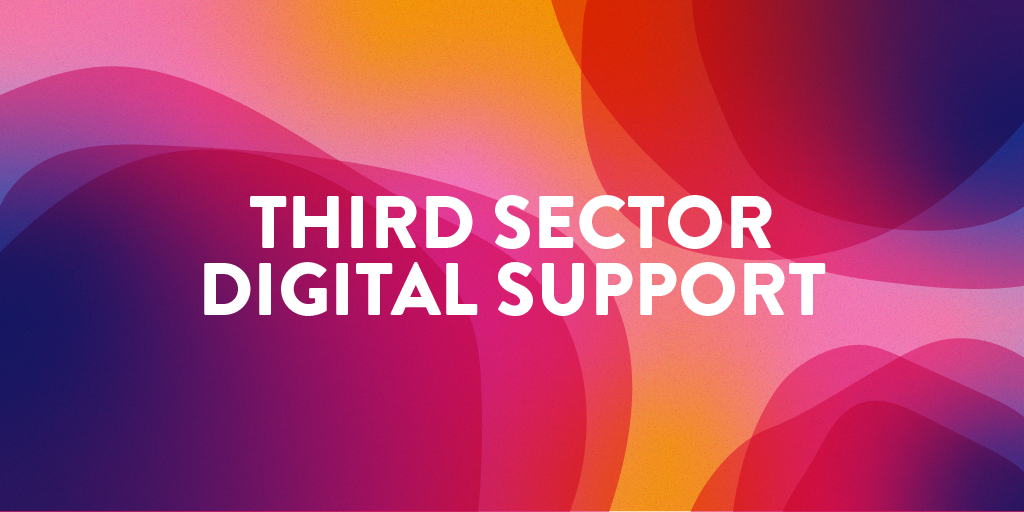
Our approach
ProMo Cymru delivers the Digital Service Design Programme to third sector organisations in Wales. Through this programme, organisations receive training, mentoring and guidance to design and develop a new digital service or rethink existing services using the service design methodology. Participants follow the Discover, Define, Develop and Deliver process to find user-focused solutions that make a real difference.
The aim of the course is to provide participants with the knowledge and skills to design user-centred digital, accessible services that lead to delivering better outcomes for communities in Wales.
Researching user needs
Kidscape conducted user research through both focus groups and surveys, revealing a significant disconnect between young people’s needs and the support they were receiving from schools.
In the focus group, it became clear that teachers were not providing the support that young people really wanted. The young people described the school as becoming “too involved” and “kept [the friendship problem] dragging on longer than needed.”
The young people suggested having a digital “chill out room” and said it would be good if “people just had someone to talk to who would listen. Not a teacher, because teachers report things even when they’re not serious enough to be reported. Teachers take sides and put pressure on. Someone from a charity who you can trust, just on your phone”.
Interestingly, there was a similar theme in the survey. When asked “If we could do one thing that would make a difference to you and the bullying situation, what would it be?”, several answers reflected on the teachers’ role in the situation. Comments included: “Talk to schools and make them take action. Schools don’t follow anti-bullying procedures. They brush bullying under the carpet. Instead, they gaslight the bullied person and intimidate the parents”. Other responses stated that they wanted: “The teachers at school to notice more and help kids understand the impact of bullying” and “They get told off by the teachers, but they still keep bullying”.
It seemed from the feedback that young people felt that schools were reluctant to take action on bullying. When they did, that action was not perceived as effective by the young people experiencing it.
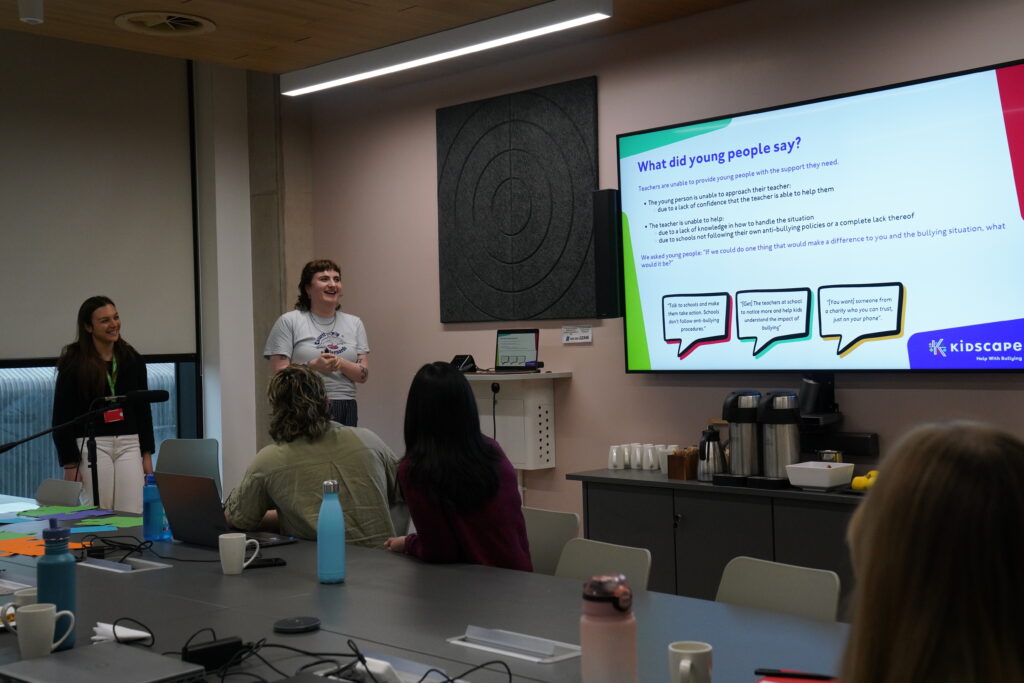
Developing a solution
After the research, Kidscape reframed their challenge: “How might we help young people who are experiencing bullying to feel a sense of security in school?”
Their initial prototype called the ZAP Pass was a digital document which could be given to children after a ZAP workshop. The idea was that young people could show their teacher that they’d been to one of these workshops. It would also have some advice for teachers on how to respond to bullying, which would empower children to feel more held and less alone – like Kidscape was still with them
Testing and iteration
When testing the prototype, Kidscape gained feedback that led to significant adjustments. The initial ZAP Pass prototype proved impractical as children often lacked consistent access to phones within schools or were hesitant to display them in front of their peers. Cue lots of head-scratching about the best way to help children contact their teachers, when there were different systems in schools all over the country.
In the end, Kidscape’s iteration was simple. They already sent an email to parents after our ZAP workshops, so they added some extra resources for children, including the ZAP Pass, into a Toolkit. The Toolkit includes some exercises to help ease anxiety, so children can start to regulate and feel safer. Moreover, children (with their parents’ help) can contact their teachers if they want to, in a way that suits their school.
Recognising the need to support teachers directly, Kidscape also developed staffroom posters with practical bullying intervention tips. They designed lanyards for staff, ensuring these tips were readily accessible.
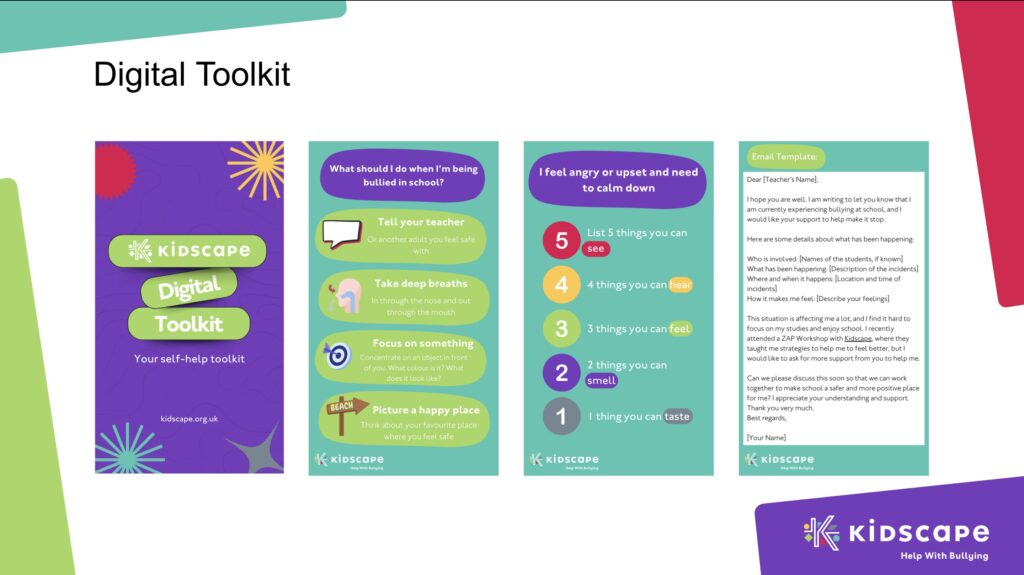
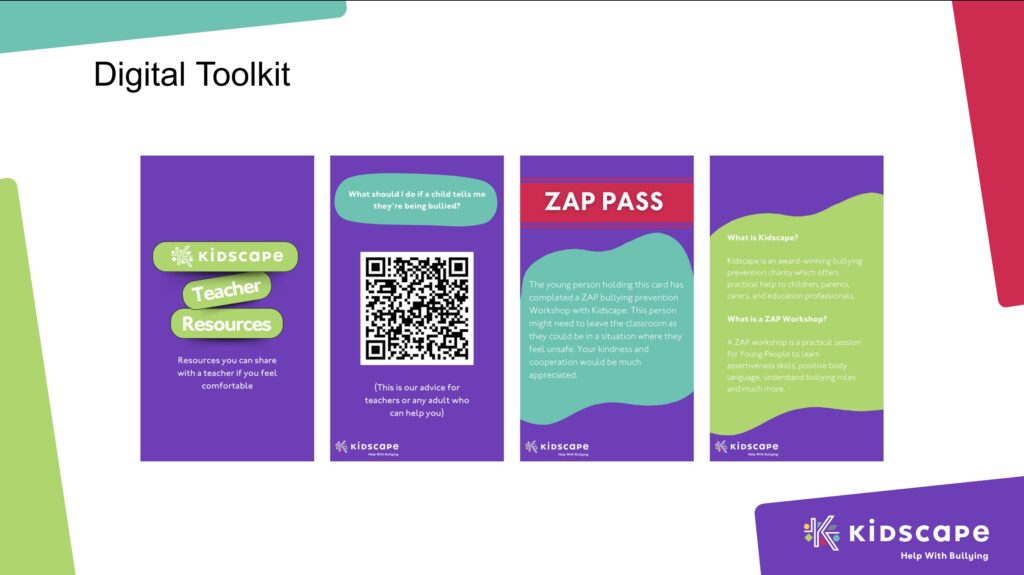
Outcomes and learning
By providing a comprehensive Toolkit, they’ve extended support beyond the initial workshops, ensuring children have access to valuable resources and calming techniques long after the sessions end.
The development of staffroom posters and lanyards aims to empower teachers with the confidence and knowledge needed to effectively address bullying incidents. In turn, Kidscape hopes that this fosters a more supportive and responsive school environment for all young people.
Kidscape will continue to gather feedback to refine its approach, but they are confident that these changes will ultimately create a stronger safety net for young people facing bullying, ensuring they feel heard, supported, and protected.
When asked about the more useful aspect of the programme, a staff member from Kidscape shared that:
“The double diamond model is just fantastic. It’s bizarre how you can start so confidently thinking one thing, and then end up on a totally different track. For example, we never would have guessed that children wanted their teachers to be better informed. It’s also so useful to think in terms of the skateboard: it means that you’re always testing, changing, pushing for something to be better and better in response to feedback.”
Kidscape faced challenges in gathering feedback, particularly from young people. They are now prioritising the development of a Youth Voice group to improve engagement.
When asked about the biggest challenge on the programme, they stated:
“Actually getting the feedback! It’s not always the most fun thing to do, especially if you’re a young person. Filling out a survey or joining a focus group is probably not high on your list of priorities. We really struggled, and it’s pushed us to put more time into developing a Youth Voice group at Kidscape.“
Interested in the power of service design for your organisation?
At ProMo Cymru, we help organisations to design better services with people using a service design methodology. Our approach combines our experience in youth work, community organising, co-design, and cultural engagement.
Kidscape was one of six third-sector organisations that attended the 2024 cohort of the Digital Service Design Programme. Thanks to funding through the National Lottery Community Fund for the Third Sector Digital Support project, ProMo Cymru were able to offer each participating organisation £4,800 remuneration to contribute towards staff time and resources for the 7-month course.
Halyna Soltys
10 April 2025

Service Design

TSD Training

Third Sector Digital

TSD Case Studies

Related Articles
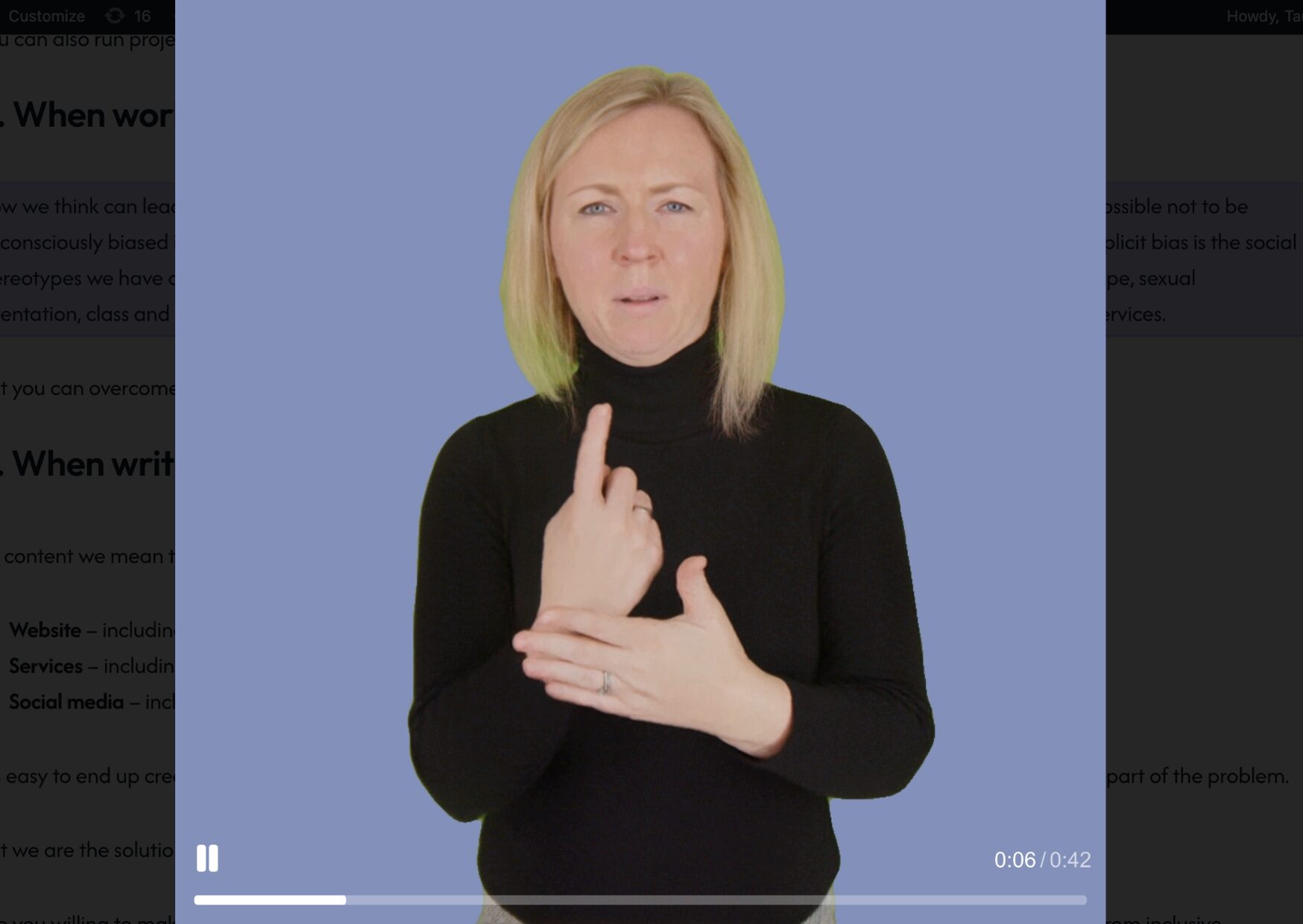

ProMo Cymru
Signapse: Using AI to Improve Accessibility for BSL Users
ProMo Cymru is partnering with Signapse AI to make digital content more accessible through British Sign Language (BSL). Through this partnership, ProMo is exploring how AI assisted BSL translation can support digital communication while saving time and reducing barriers to implementation. Signapse is a Deaf-first organisation using AI to translate written content into high-quality sign […]


News
From Wales to Malta: Highlights from the 4th European Youth Work Convention
Earlier this year, ProMo Cymru’s Communication and Content Officer, Halyna Soltys, had the opportunity to attend the 4th European Youth Work Convention in Malta. The event, which only happens every 5 years, brought together over 500 members of the youth work community, including policymakers, researchers, and youth workers. The convention was a huge learning experience […]
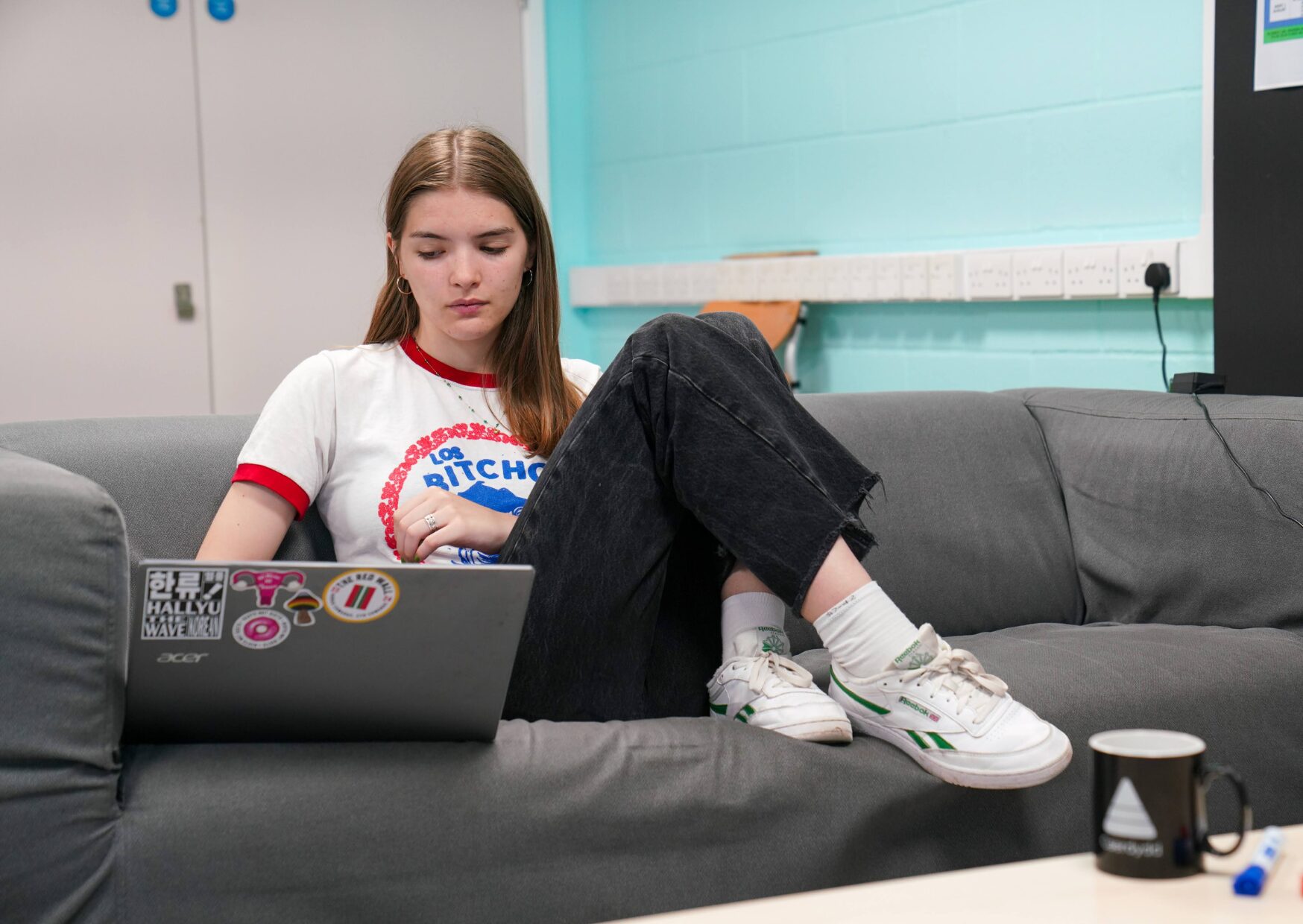

Service Design
Transforming Youth Mental Health Access Through Co-production in Gwent
Young people and mental health professionals are working together to directly improve services for youth in Gwent. Young people co-leading the Mind Our Future Gwent (MoFG) project have been working with Gwent SPACE-Wellbeing Panels to improve access to mental health services. The panels are a single point of access for children’s emotional wellbeing and mental […]
